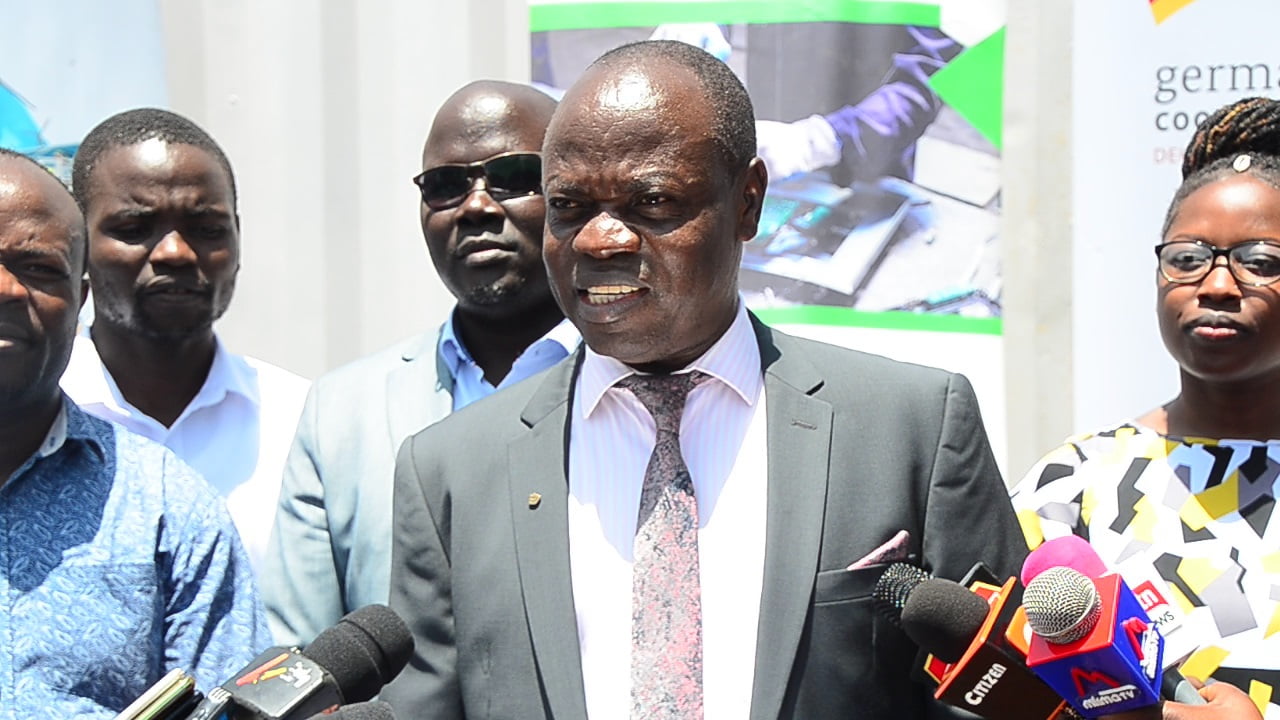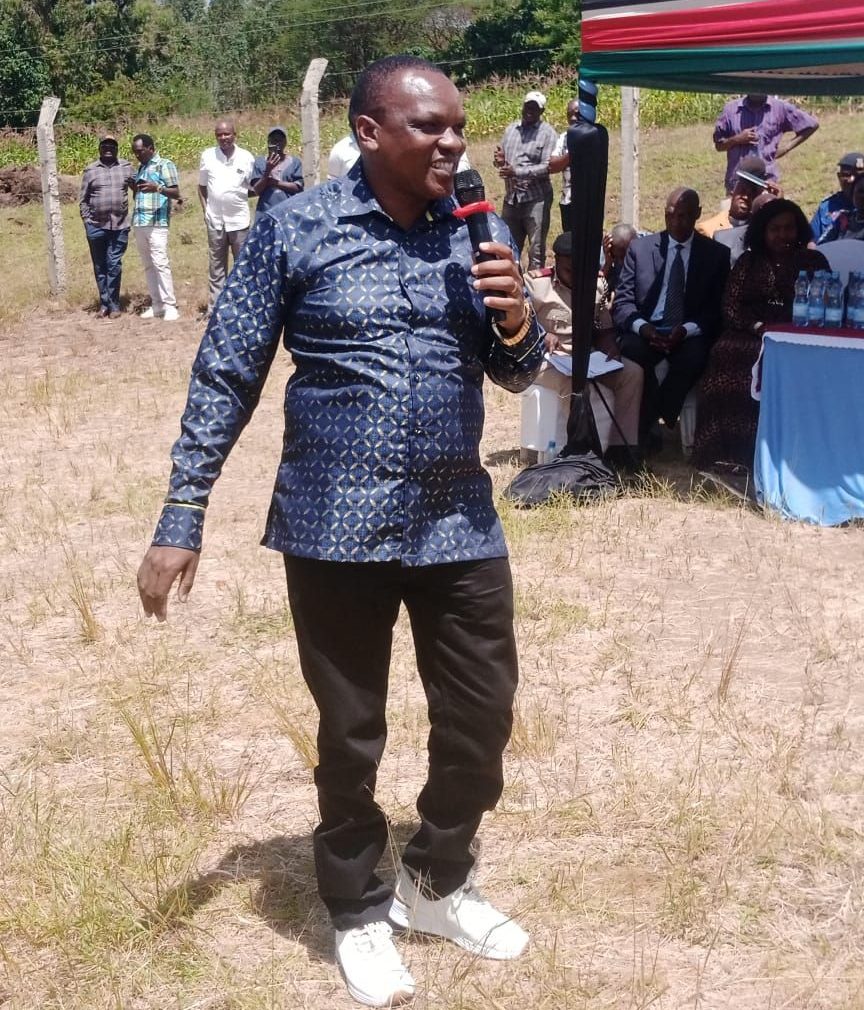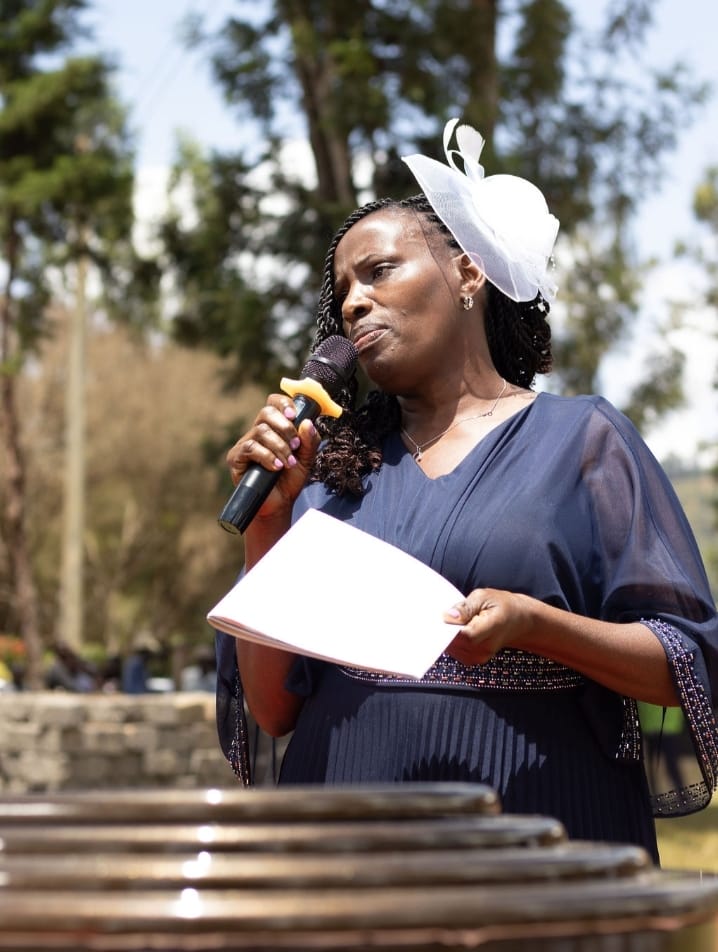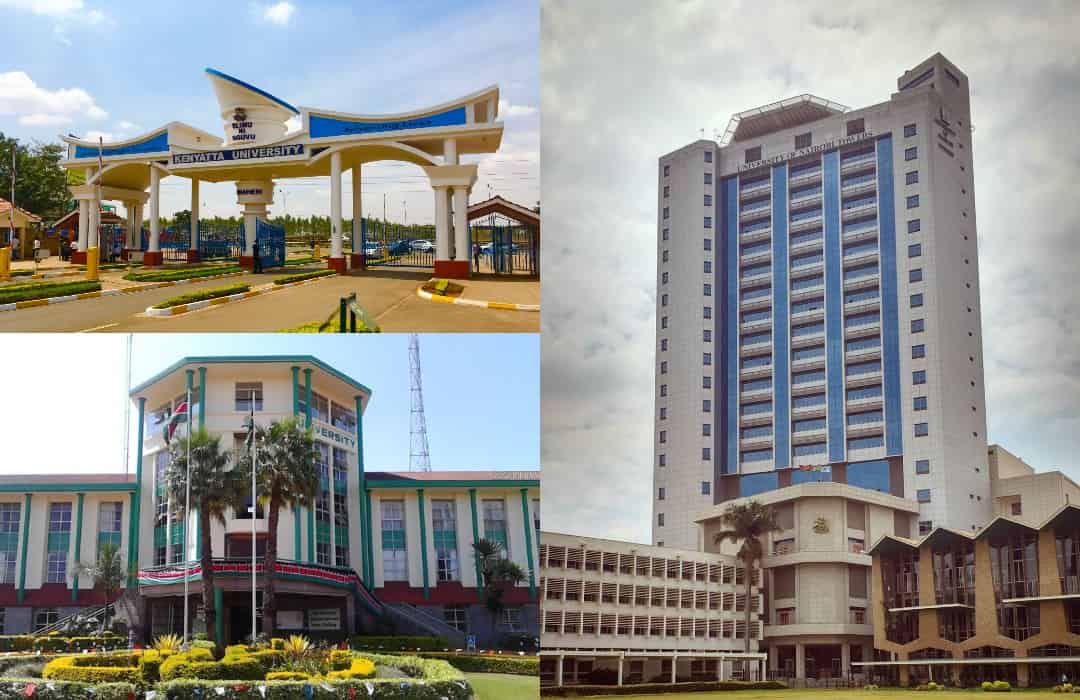By Jeff Mwangi
Meru University of Science and Technology (MUST) has rolled out an E-Waste (electronic waste) Management training course, becoming the first university in Africa to offer the same.
Speaking during the launch of the programme at MUST main campus, Vice Chancellor (VC) Prof. Romanus Odhiambo said that the university was glad to be the first one in Africa to train students on e-waste management adding that the university is going to churn out the first group of 175 students in June 2023; who will double up as agents for their collection center as they continue scaling up.
“In the meantime, we are looking to establish a mini recycling center that will act as a teaching factory cum income generation center that will help in youth job creation,” the VC said.

He said that according to the global e-waste monitor report for 2020, electronic waste was currently the world’s fastest-growing stream of waste with 53.6 million metric tons of e-waste being produced each year, and if left unchecked this could double to 120 million tons by 2050 and that globally, only 17.4% of e-waste is managed appropriately.
“E-waste is expected to increase by 5% to 8% on the back of increased use of ICT equipment globally. In Africa, the growth rate is higher than the average. The ICT sector in East Africa has been growing by more than 15% across the region. This rapid growth of ICT and the economy has contributed to massive generation of electrical and electronic waste,” the VC said.

Prof. Odhiambo said that at the heart of the e-waste problem is a lack of innovative solutions, preventing countries from developing circular economies for electronic equipment – a model where resources are re-used and recovered rather than disposed of at the end of its life.
He said it was critical that manufacturers, academic institutions, recyclers and individual consumers play their part in improving the prospects for circular economies.

The VC said that the options to close the loop and practice a circular economy relies on action regarding urban mining, innovations and the Reduce, Reuse and Recycle approach.
Prof. Odhiambo noted that they have a fully functional sanitation research institute and are planning to use the same model for the e-waste management programme adding that they plan to upscale the current technician courses to Bachelors, Masters and PhDs to enable research on the problematic e-waste fractions that are difficult to recycle; and also come up with novel ways of recycling more tons of e-waste at minimal costs.

The VC disclosed that over the life of the project, the MUST E-waste Centre aims to; raise public awareness and stakeholder engagement on e-waste disposal and recycling, train as many people as possible, expand the facility’s processing capacity and create as many jobs as possible.
The project’s key partners are GIZ, WEEE Centre and Pan African E-Waste Solutions Limited who brought on board the E4D team to support the collection center under the Vocational Education and Training (VET) Toolbox; a partnership of leading European development agencies, including British Council (UK), Enabel (Belgium), Expertise France (France), GIZ (Germany), LuxDev (Luxembourg) and AFD (France). The project is co-funded by the European Union.






